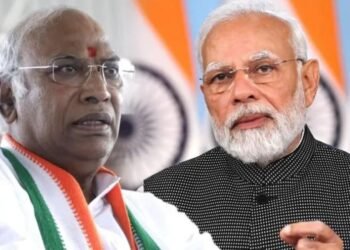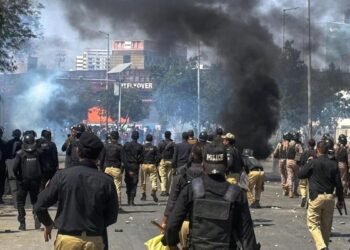Parth Pawar, son of Maharashtra Deputy CM Ajit Pawar, remains conspicuously untouched in the ₹1,800 crore Pune land scam despite mounting documentary evidence.
BY PC Bureau
In the high-stakes world of Maharashtra politics—where family legacies, real estate empires, and political influence often converge—few figures embody privilege quite like Parth Pawar. As the son of Deputy Chief Minister Ajit Pawar, Parth has long navigated the corridors of power, his ventures cushioned by the aura of his father’s authority.
Yet, in the explosive Pune land scam unraveling since late 2025, Parth finds himself at the epicenter of a scandal that refuses to fade. Despite mounting evidence—including signed resolutions waiving stamp duties and his 99% ownership in the purchasing firm—he remains conspicuously untouched by official scrutiny.
No FIR bears his name. No summons has been issued. And the state government’s actions appear carefully choreographed to shield the heir apparent from legal consequences.
This glaring omission raises a fundamental question: could a deal involving 40 acres of government land—valued at ₹1,800 crore but bought for just ₹300 crore—have occurred without the knowledge and approval of the company’s majority owner? As opposition leaders and civil activists cry foul, this controversy has evolved into a larger indictment of political dynasties and the misuse of administrative machinery in India’s most politically charged state.
The Explosive Document: A Signature That Speaks Volumes
The scandal ignited on November 6, 2025, when Shiv Sena (UBT) leader Sushma Andhare unveiled what she described as a smoking gun: a document allegedly bearing Parth Pawar’s signature on a resolution by the District Industries Board, authorizing stamp duty waivers worth crores.
This was no clerical formality—it was a direct administrative link to the deal that transferred Mahar Vatan land, reserved for Dalit landless families, into private hands.
The 40-acre plot in Pune’s upscale Mundhwa area, near Koregaon Park, was sold on May 20, 2025 to Amadea Enterprises LLP, where Parth holds a 99% stake and his relative Digvijay Amarsinh Patil (Sunetra Pawar’s nephew) owns 1%.
Despite this overwhelming ownership pattern, the Pune Police FIR names only Patil, along with suspended Sub-Registrar Ravindra Taru and power-of-attorney holder Sheetal Tejwani. Parth’s name is missing entirely.
Activists such as Anjali Damania and opposition leaders like Ambadas Danve have accused the government of deliberately manipulating the FIR to protect the Deputy CM’s son. They demand a judicial inquiry led by a retired High Court judge to ensure transparency and accountability.
A second FIR, filed on November 7, 2025, at Bavdhan Police Station, alleges a conspiracy to evade ₹5.89 crore in stamp duty and misappropriate 13 additional acres in Bopodi, again without due payment despite a district directive dated May 9, 2025. Parth’s absence from this FIR, too, reinforces the narrative of selective justice.
READ: Centre, Kuki-Zo SoO Groups Open Talks on Union Territory Demand
The Pune land scam controversy deepened after Shiv Sena (UBT) leader Sushma Andhare produced a document allegedly signed by Parth Pawar, linking him directly to the ₹1,800 crore land purchased for ₹300 crore by Amedea Enterprises LLP. The document reportedly contains Pawar’s… pic.twitter.com/qbgx0KdGkw
— Pune Mirror (@ThePuneMirror) November 7, 2025
The Deal’s Underbelly: Undervaluation, Waivers, and Whispers of Influence
At its core, the transaction reeks of systemic manipulation. The land—classified as Mahar Vatan—was grossly undervalued at ₹300 crore, just one-sixth of its real worth. The stamp duty waiver, allegedly authorized by Parth, bypassed established legal safeguards meant to prevent such exploitation of reserved land.
Opposition MLA Vijay Wadettiwar argues, “In any legitimate enterprise, a 99% owner like Parth Pawar would be deeply involved in due diligence, negotiation, and approvals. Delegating through a power of attorney is a textbook tactic to create legal distance while retaining control.”
He and other leaders have demanded Ajit Pawar’s resignation and a criminal case against Parth, calling the omissions in the FIR a “brazen cover-up.”
The timeline of events further deepens suspicion. Despite a May 9 directive explicitly requiring payment of stamp duty, the sale was completed without compliance, covering 272 sub-plots. How could a deal of this magnitude proceed without the knowledge of the 99% owner?
Ajit Pawar’s defense—that neither Parth nor Patil knew the land was government-owned—has been met with disbelief. In an era of digitized land records, ignorance of ownership status strains credibility.
The Pune land scam controversy deepened after Shiv Sena (UBT) leader Sushma Andhare produced a document allegedly signed by Parth Pawar, linking him directly to the ₹1,800 crore land purchased for ₹300 crore by Amedea Enterprises LLP. The document reportedly contains Pawar’s… pic.twitter.com/qbgx0KdGkw
— Pune Mirror (@ThePuneMirror) November 7, 2025
Ajit Pawar’s Statement: Defiance Draped in Deniability
Under growing pressure, Ajit Pawar broke his silence on November 7, declaring, “I have no connection to this deal. Neither I nor my office intervened or had any knowledge of it.” He insisted that the transaction was merely an agreement to buy, not a completed sale.
Parth, he claimed, viewed the deal as “above board,” but voluntarily cancelled it amid allegations of impropriety. “The document for cancellation has been submitted to the registering authority,” Ajit said, emphasizing his family’s “commitment to probity.”
Yet, the timing—just a day after the exposé—suggests damage control, not moral reckoning. Congress leader Rahul Gandhi called it “the theft of Dalit-reserved land,” while Anna Hazare demanded ministerial accountability. Andhare, meanwhile, accused state agencies of protecting the Pawars despite clear documentary links.
Government’s Response: Symbolic Action, Superficial Scrutiny
Chief Minister Devendra Fadnavis, once celebrated for his anti-corruption crusades, announced a high-level probe led by Additional Chief Secretary Vikas Kharge, giving it a one-month deadline to assess losses and procedural violations. “No one will be spared,” he said, while dismissing questions about Parth’s omission with a terse, “Those who don’t know what an FIR is shouldn’t speculate.”
Revenue Minister Chandrashekhar Bawankule echoed that only those “whose names appear on sale documents” were included in the FIR. “If Parth’s name surfaces, he will be added,” he said—a justification critics call bureaucratic gymnastics.
The suspension of Sub-Registrar Taru and FIRs against minor players appear to be symbolic sacrifices, shielding those higher up the chain. A senior Revenue Department official, speaking off record, acknowledged “political pressure at multiple levels.”
Opposition parties have demanded a judicial probe with public representation, warning that the administrative inquiry risks becoming a “whitewash.”
The Deeper Nexus: Power, Privilege, and the Parth Paradox
This isn’t Parth Pawar’s first brush with controversy. From earlier public scandals to his directorship in multiple Pawar-linked firms, his career often straddles the line between business and inherited power.
Critics note that Amadea Enterprises’ registered address traces back to a Pawar family property in Pune, reinforcing suspicions of insider maneuvering.
The episode also exposes the fragility of the BJP–NCP alliance, forged on anti-corruption rhetoric but now mired in allegations of nepotism and complicity. The echoes of Ajit Pawar’s 2012 irrigation scam resurface, suggesting a political cycle where scandal meets survival—and survival wins.
Public Outrage and the Dalit Dimension
Beyond political theatre, the scandal cuts deep into Maharashtra’s social conscience. The alleged diversion of Mahar Vatan land—historically meant for Dalit empowerment—represents not just corruption, but betrayal of social justice.
Rahul Gandhi’s phrase “theft of Dalit land” resonates widely. Civil society groups demand restitution and legal action, arguing that public trust cannot coexist with political immunity.
“This is exactly why people lose faith,” Wadettiwar remarked. “When the powerful evade justice, the law becomes a tool for the privileged.”
As Vikas Kharge’s probe proceeds under public scrutiny, the Pune land scam tests Maharashtra’s moral and legal foundations. Parth Pawar’s continued exemption from investigation—despite signatures, stakes, and circumstantial links—embodies a justice system bent under political weight.
The cancellation of the deal may pause the fallout, but not the questions. Was this ignorance or orchestration? Will evidence eventually force inclusion, or will technicalities triumph?
In Indian politics, justice often bends to influence—but it doesn’t always break. With opposition fury rising and public attention sharpened, the Pawar dynasty faces perhaps its most consequential test yet.
For now, Parth Pawar remains a shadow in his own scandal, but the light of accountability is inching closer.














